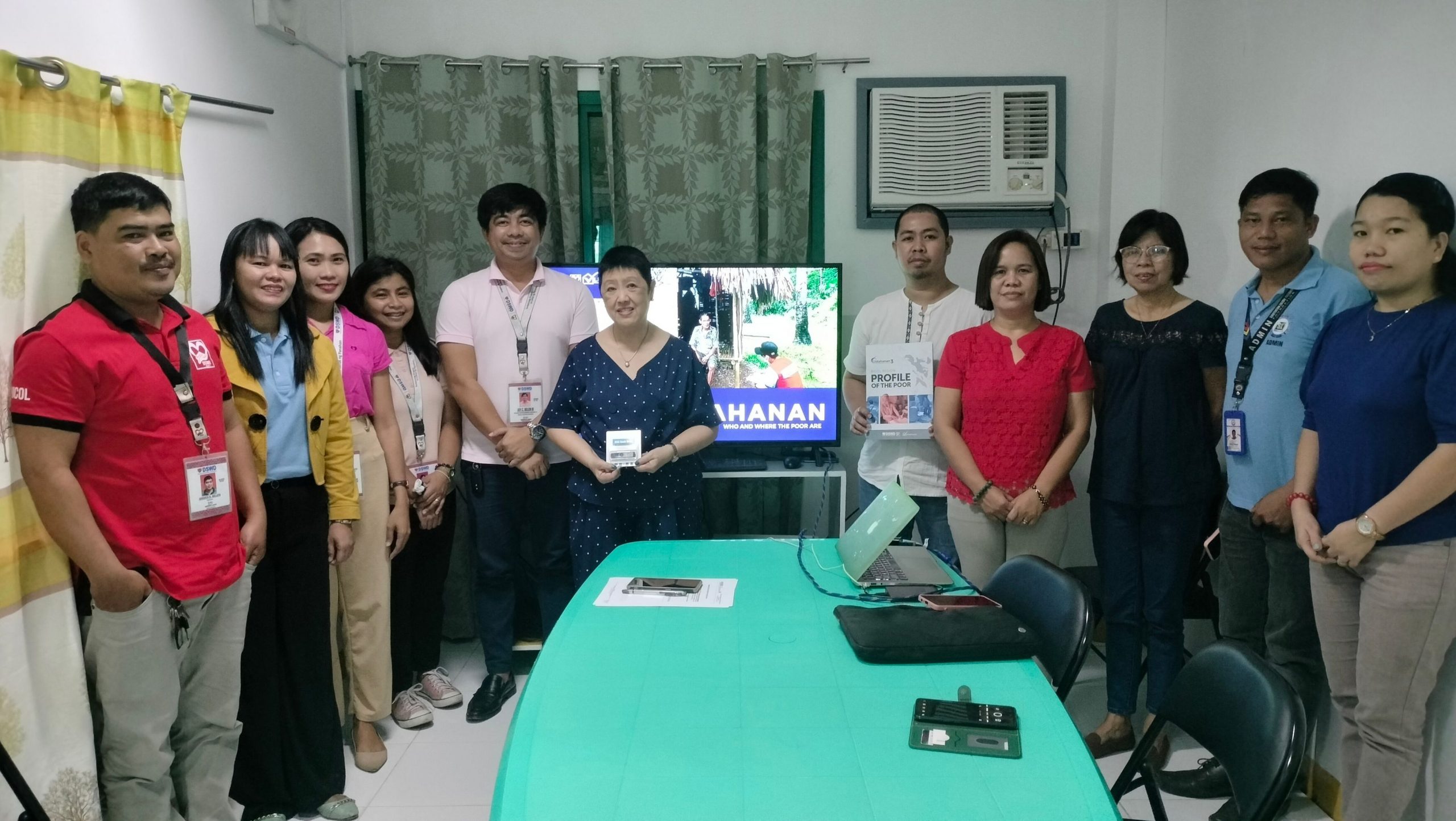
LEGAZPI CITY—Recognizing its significance in implementing social protection programs and services for the underprivileged, an increasing number of stakeholders in the Bicol region are expressing their interest in acquiring access to the Listahanan 3 database, the latest data of poor households in the region.
Aside from Local Government Units (LGUs), the academe is also making a move to enter into a Data-Sharing Agreement with the Department of Social Welfare and Development Field Office 5 (DSWD FO5) through the National Household Targeting Section (NHTS).
Southern Luzon Technological College Foundation Incorporated (SLTCFI) in Legazpi City was the first among schools in Bicol to acquire access to the database after entering the agreement on December 5, 2023.
On the said date, the Regional Project Management Office (RPMO) team, led by NHTS head Joy C. Belen III discussed with SLTCFI President and CEO Dr. Rosemarie Quinto-Rey and her staff about Listahanan as an information management system for poor households.
Present in the activity were SLTCFI Vice President for Academic Affairs Lydia Lozano; System Administrator Michael Quinto; Vice President for Administration Honelet Bertis; HR Generalist Regine Altavano; School Librarian Marilyn Perez; Administrative Support Rona Dela Cruz and Marketing Director Johnson Gonzales.
After the orientation and fruitful discussion, Belen formally handed over to Dr. Quinto-Rey the Listahanan 3 database and the Regional Profile of the Poor catalog. The president of the institution emphasized that the database would become a very useful tool in identifying deserving beneficiaries for their scholarship program including their special programs focusing on educating and capacitating the poor to help break the inter-generational cycle of poverty.
“Right now, we are focusing on advocating freelance jobs like Business Process Outsourcing occupation and Virtual Assistant and planning to administer capacity training to selected beneficiaries. We will use the Listahanan database to choose a Barangay with the greatest number of poor households to be adopted for this,” she said.
She stressed that education is an effective way to address poverty especially since Bicol is noted for being one of the regions in the country with the highest magnitude of poor. “Poverty and lack of education are contributors to the proliferation of insurgency and criminalities, that’s why, we are eager to capacitate these deprived through our special programs and with the help of our partner stakeholders like you (DSWD),” she added.
DSWD FO5 Regional Director Norman S. Laurio commends Quinto-Rey and the SLTCFI for being the first school in the region to enter the Data-Sharing Agreement, with the end goal of helping those in and below the breadline, improve their quality of life.
On the other hand, the Local Government Unit of San Lorenzo Ruiz in Camarines Norte entered the agreement on November 30, making it the first LGU in the province to acquire access to the latest poverty database.
The NHTS team personally turned over the Listahanan 3 database to Municipal Planning and Development Coordinator Rico C. Brizo and Data Protection Officer Arvin G. Rada following the orientation on data-sharing guidelines and the recent magnitude of poor in the said town.
Data shows that San Lorenzo Ruiz is 11th among the 12 towns in the province in the magnitude of poor with 1, 494 poor households. Camarines Norte is 5th among the six provinces in Bicol with 61,542 poor households.
The LGU Officials expressed their gratitude to DSWD – NHTS, accentuating that the data will be used to select eligible beneficiaries for their programs and services for the poor. Among the list of LGUs with access to the Listahanan 3 database are the Sorsogon provincial government and the municipalities of Palanas, Uson, and Aroroy in Masbate province.
Regional Director Laurio continuously encourages other stakeholders to request a Data-Sharing Agreement with DSWD to obtain access to the latest poverty database for their programs and services. He said that the government is doing its part to reduce the number of poor households using its resources and funds to help the rightful beneficiaries improve their lives.
